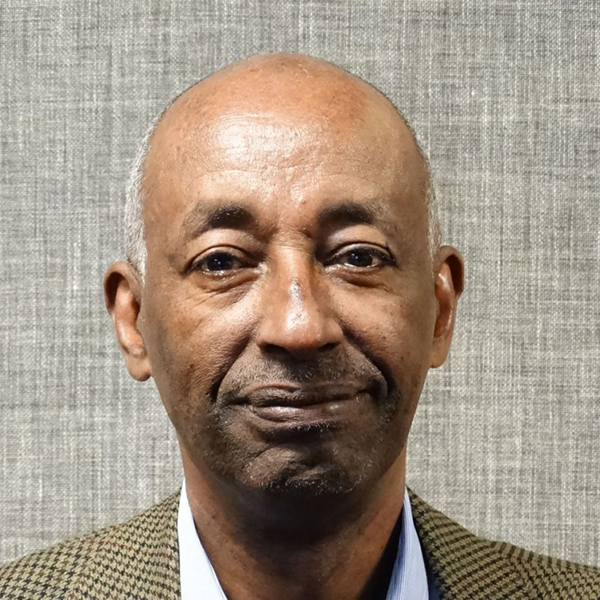By Kirk Woundy
“I love this work, the work I do, because it is so messy.”
Fantu Cheru ’75 says it with a smile, and then gets into the meat of his speech. And before long, you get a sense of the mess. The venue is a 2013 North-South Institute forum, and in 19 minutes captured on YouTube, Cheru explains some of the complexities of foreign investment, aid, and trade — sneaking in quick allusions also to corruption and migration — as they relate to managing Africa’s natural resources.
He tells the crowd, “We are really grappling … with mega issues, in an environment of turbulence.”
Cheru, a political economist, has immersed himself in this environment for more than 30 years. For 24 of those, he taught African and development studies at American University in Washington, D.C. He retired from American in 2007, and now holds research positions at the Stockholm International Peace Research Institute and the Center for African Studies at Leiden University, both in the Netherlands. He spends the rest of his time in Addis Ababa, Ethiopia, where he advises the country’s Ministry of Urban Development, Housing and Construction.
If it doesn’t sound much like “retirement,” well, it’s not. When Cheru left American, he immediately took a post as research director at the Nordic Africa Institute in Uppsala, Sweden. After five years there, he decided to devote his “remaining active years” to work in Africa, where he’s focusing primarily on responsibly strengthening industrial policy in Ethiopia. “With 60 percent of Ethiopia’s 100 million people under the age of 23,” he says, “job creation is the most urgent priority, and deepening the manufacturing base is one of the solutions to the employment crisis.”
Cheru is a citizen of both Ethiopia and the United States; he was born in the former, but chose to go to college in the latter. It didn’t unfold exactly as planned.
“I came to Colorado College to study business,” he says, “but left with a degree in political science and international relations thanks to a huge influence from the late Professor Fred Sondermann.”
After graduating from CC, Cheru went on to Portland State University, where he earned an M.S. in political science and a Ph.D. in political economy and urban planning. While success there certainly helped lead him to a professorship, Cheru sees his undergraduate years as perhaps even more pivotal.
“My CC experience had a huge impact on my intellectual and career trajectory — more important than the subsequent years in graduate school,” he says.
Like Sondermann, as a professor Cheru has achieved much in the wider academic world. He has written articles for journals including International Affairs and World Development, and continues to work on multiple editorial boards. He’s also had books published, such as “The Rise of China and India in Africa: Challenges, Opportunities and Critical Interventions,” co-edited with Cyril Obi of the Social Science Research Council.
Such work has always been informed by real-world experience. Within four years of his start as a professor, Cheru was testifying before Congress on the African debt crisis. A decade later, he was advising the United Nations Commission for Human Rights on foreign debt and structural adjustment. He has worked with the U.N. Economic Commission for Africa and the U.N. Development Programme.
Overall, Cheru has accumulated field experience in more than 20 African countries, meaning he’s seen firsthand what it looks like at “the epicenter of the global scramble for resources.” He explains, “The current narrative of ‘Africa Rising’ does not capture the disjuncture between high GDP growth and the pervasive poverty on the ground.”
So at events like the North-South Institute forum, he brings a more holistic perspective than that of, say, the investment bankers at Goldman Sachs. “[In] the slums of Kibera, the slums of Lagos,” he tells the crowd, “they’re different narratives.”
